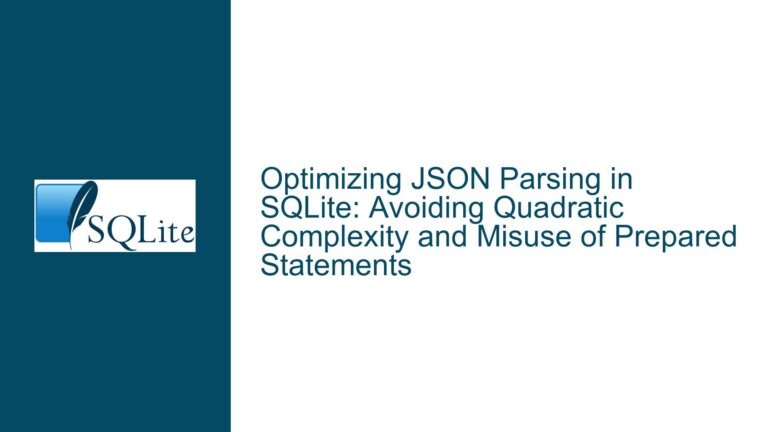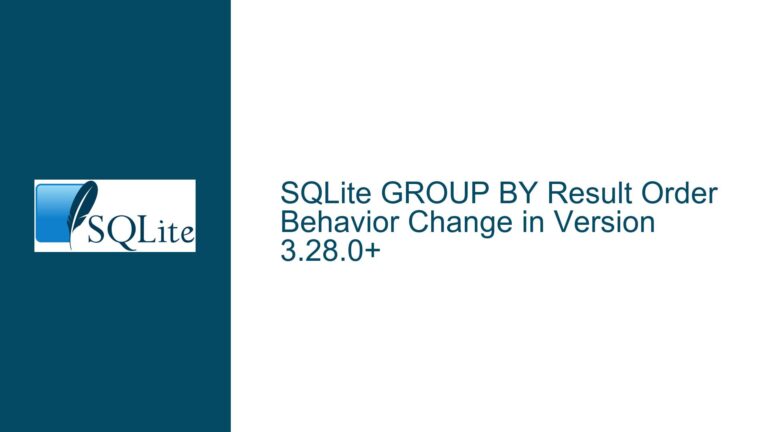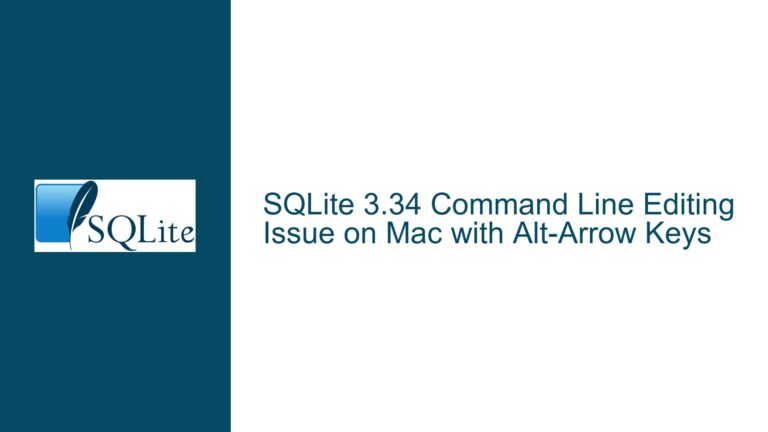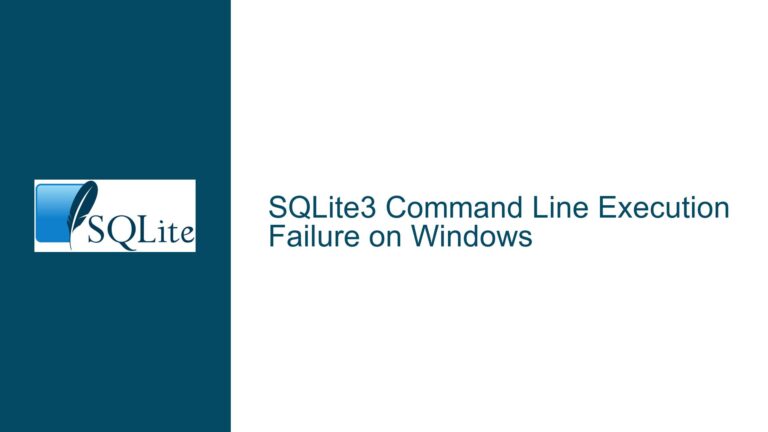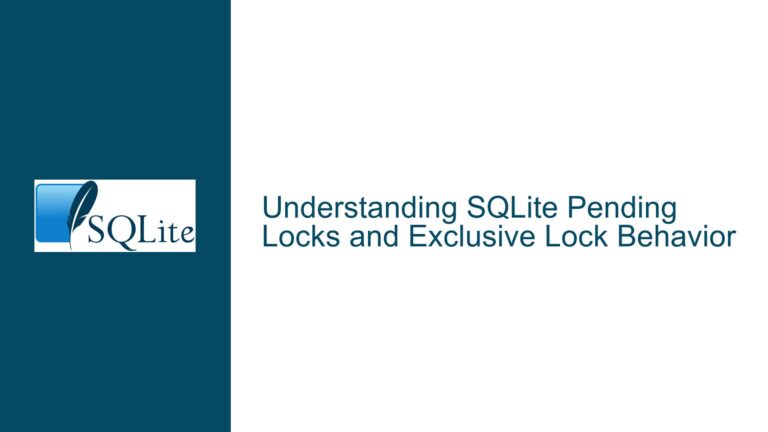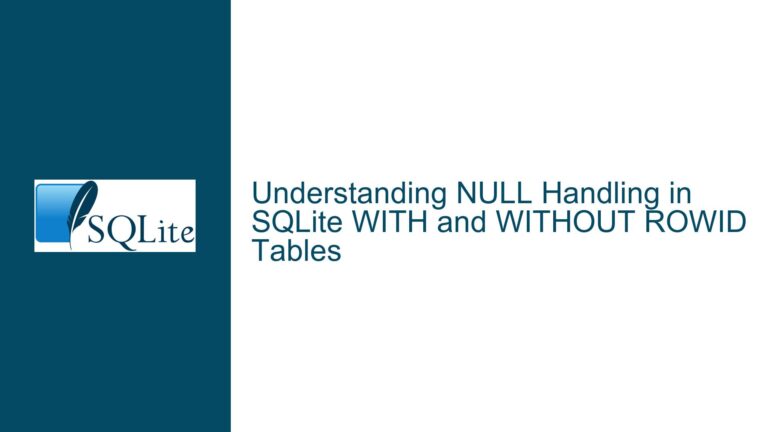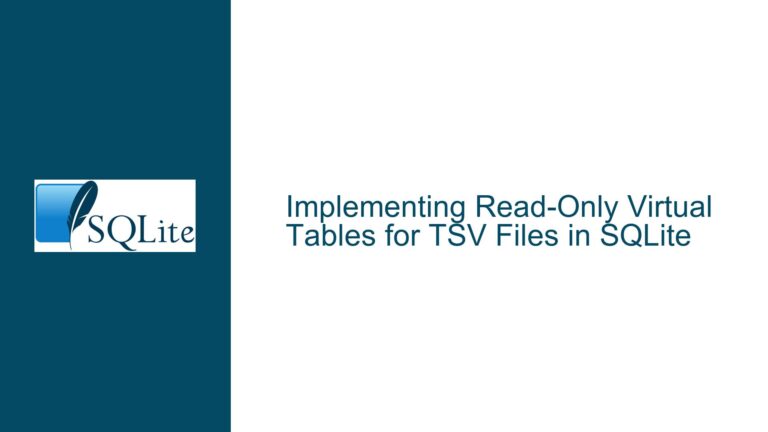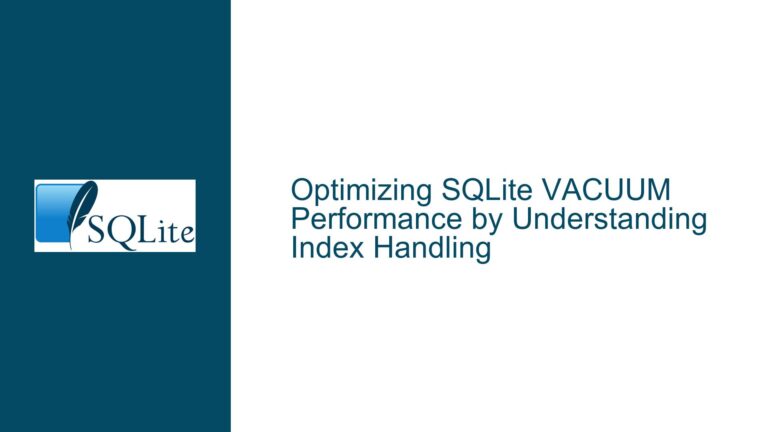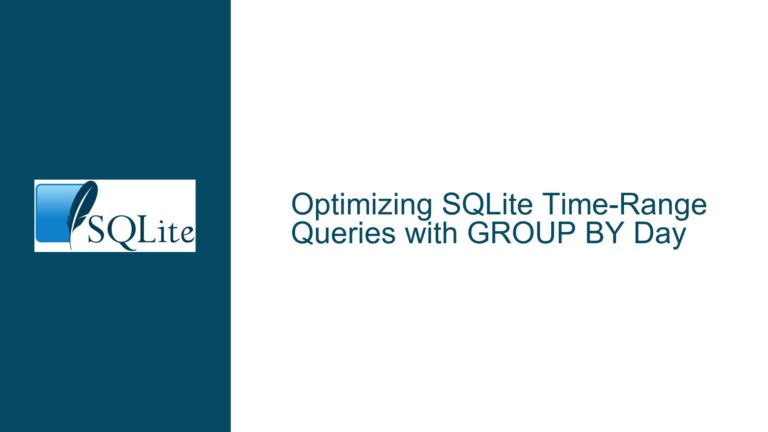Optimizing JSON Parsing in SQLite: Avoiding Quadratic Complexity and Misuse of Prepared Statements
JSON Parsing with json_extract in Loops: Performance and Correctness Concerns When working with JSON data in SQLite, a common approach is to use the json_extract function to parse and extract specific values from JSON strings. However, the method of using json_extract in a loop to extract array elements can lead to significant performance issues, particularly…
